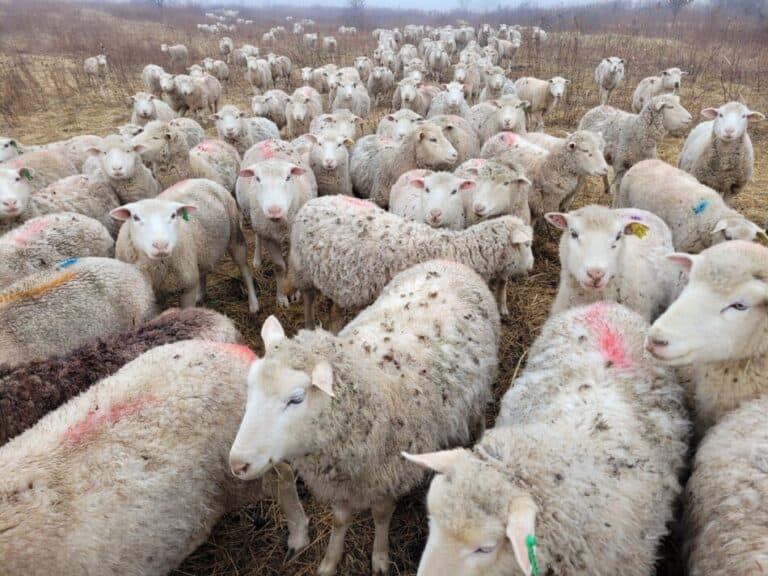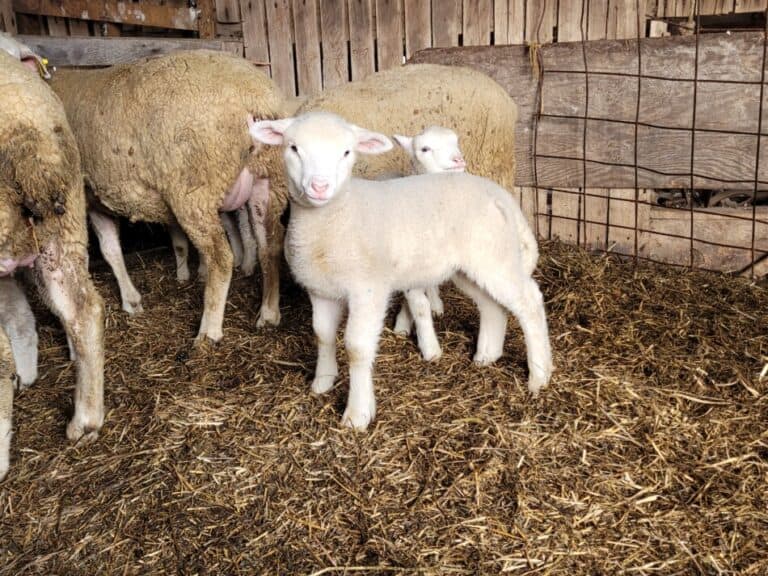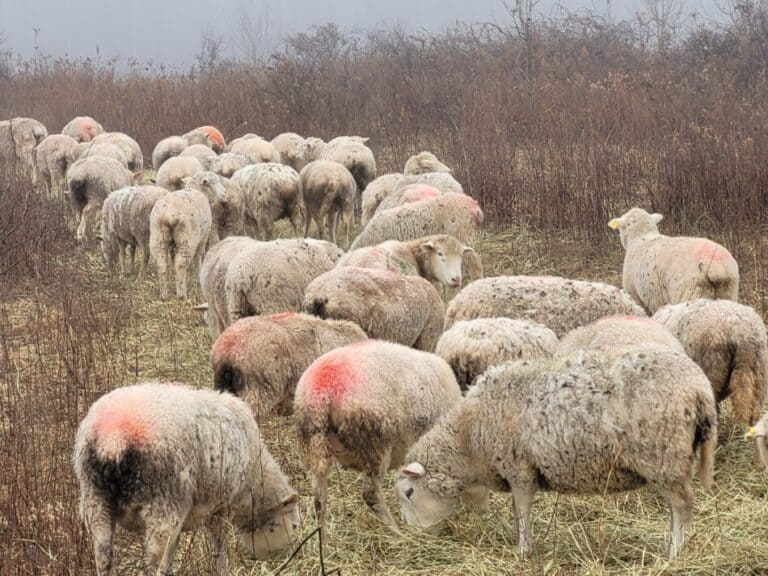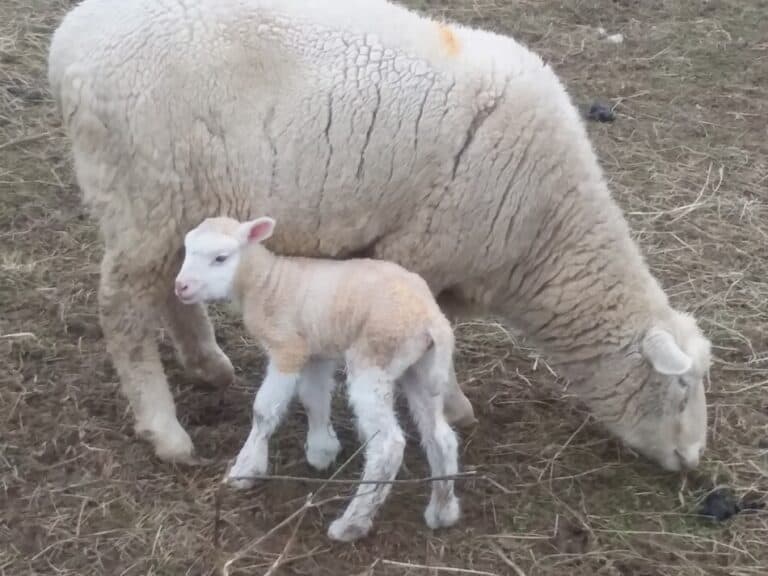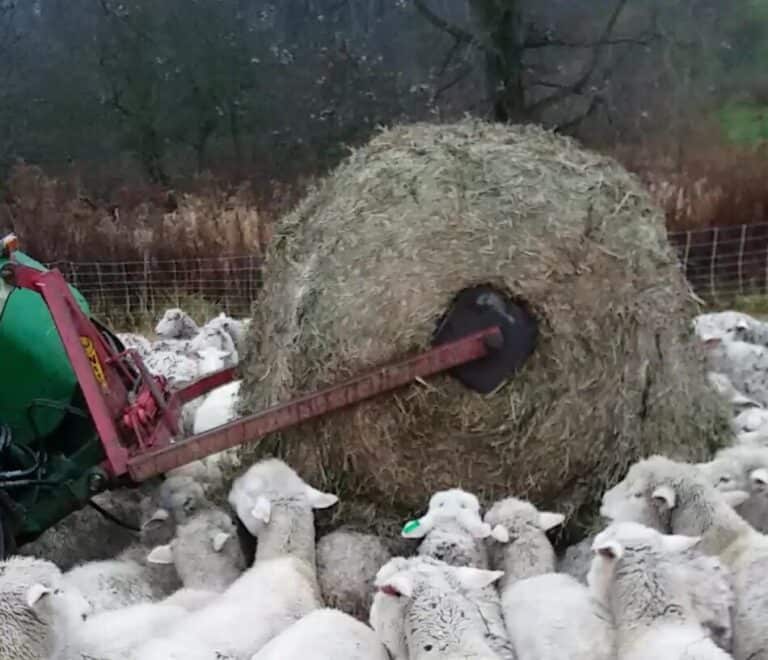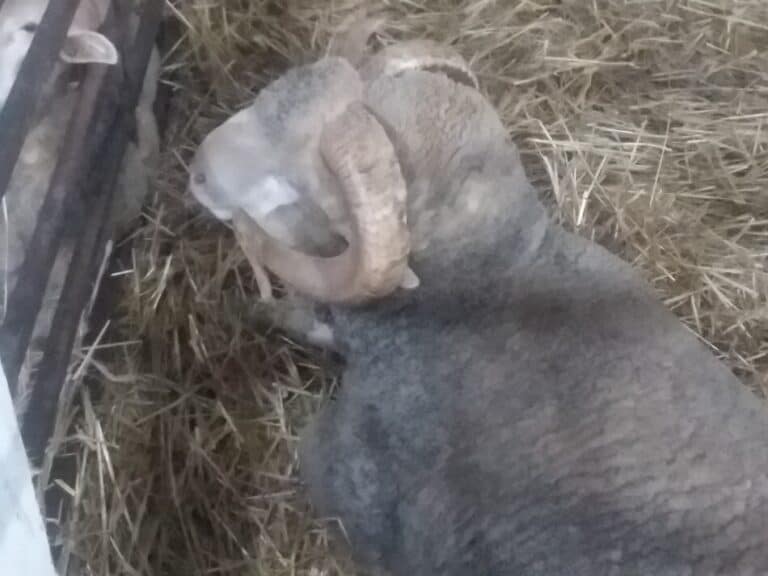How To Keep Your Sheep Safe From Predation
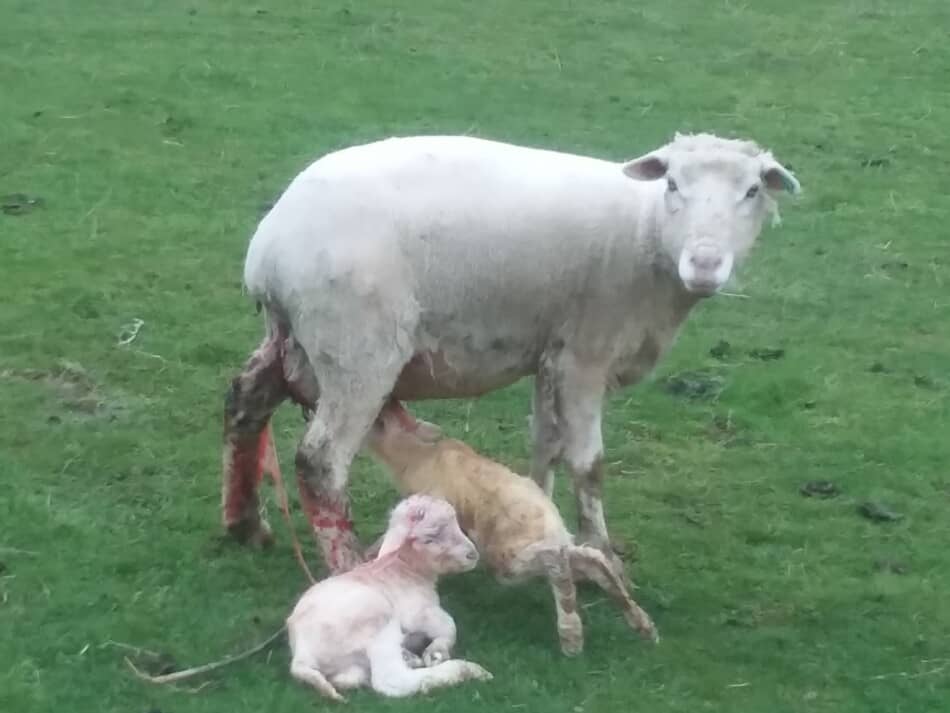
Sheep are wonderful animals to have, since they are easy to keep and can be kept nearly anywhere there is grass!
But these wonderful animals do have a weak spot or two, an obvious one is that sheep are prone to predation. So, what can you do to keep your sheep safe on your farm?
You can reduce predation on your sheep by monitoring your flock, having a good electric fence, have biodiversity in the pasture which gives the predators other options, penning at night or using an guardian animal that lives with the flock.
The steps you need to take to keep your sheep safe from predation will depend upon the area where you live and how intense the predation is that you are dealing with. These are the steps to consider.
Sheep Keeping For Beginners gives you more insight into the life of a beginning shepherd.
Keep sheep safe by monitoring them
The first thing to do to keep your sheep safe is to monitor them, that means get out there and observe your sheep!
How are the sheep acting? Are they spread out grazing or bunched up in a corner somewhere? Spread out grazing tells you that all is okay according to the flock, bunched up means something is up.
You being present in the field keeps you on top of any potential health issues and spreads around your scent, which tells any potential predator that you have been there recently and may be back any time.
Be especially vigilant at lambing time.
We have found that if we go out into the pasture right before dark and make sure that all of the new lambs are as close to the barn as they can be, predation is reduced or doesn’t happen.
Have a good fence that deters predators
Another great way to keep out predators is to have an electric fence, specifically electric netting. Electric fences tend to keep out predators, at least that is how it works around here with coyote and fox.
We have our sheep in electric netting and do not normally have predation problems.
Electric Netting For Sheep goes over how and why we use electric netting for our sheep, year round.
We do have occasional predation with any group of sheep in one of the pastures with a woven wire perimeter at a time when there are day old lambs.
For us, older lambs are fine in the woven wire, but the day old ones will get occasionally get taken by a fox coming in through the woven wire.
Once you get into predators that are larger, the fence alone is probably not going to be enough.
Electric Or Permanent Fence For Sheep gives you the pros and the cons of each type of fencing.
Abundant wildlife in pastures gives predators other options
Having an abundant wildlife population on and around your farm gives any potential predators other options of how to feed themselves and their babies, which is when they get really bold!
If a predator in your area has tons of opportunities to find lunch without ever going in with your sheep, your sheep are safer.
You can help foster wildlife on your farm by providing habitat that promotes biodiversity in your pastures. This includes different types of shelter or desirable areas for wildlife, from rabbits and birds.
Do you have places for birds to roost? Are there sections of long grass? Some birds make their nests in the tops of tall grass clumps, too!
What about piles of brush for a hiding spot for rabbits or anyone else out there looking for a spot safe from predators?
Frankenmuth Woolen Mill has an interesting article on dealing with predation, with a focus biodiversity of the pasture.
Heavy predation may require penning sheep at night
If your presence with the sheep and the electric fence is not keeping the predators away from your sheep, you may need to pen them up at night to keep them safe.
My guess is that is not the answer you are hoping to hear, but it is better to know your options and work with the situation you have than to only do the things you like and have dead sheep.
To be upfront with you, some areas have such heavy predation that if you are not willing or able to put the sheep into a safe spot for the night, you should reconsider having sheep in the first place.
Since these sheep are your responsibility, it is also up to you to make the call that sheep are not suited for your current management or situation and sell them to someone else.
I am not trying to talk you out of sheep! Not at all! Sheep are a wonderful animal to have, but they are not perfect for everyone, everywhere.
This means when you decide to get sheep you have also decided to do the things you need to do to keep them safe and happy. If your sheep need penned at night, that’s what it takes for you to keep sheep.
Use a guard animal with your flock
A final option to keeping sheep safe in a higher predation area is to use a guard animal.
There are guard dogs, of course, and other grazers like llamas and donkeys that have been used for guarding sheep, each of which have their pros and cons.
I listed guard animals last because I have no experience with them myself and have heard mixed results from other folks using each of the guard animals commonly used with sheep.
Keeping in mind, we do not have guard animals, ourselves, there are the things that I would want to have ironed out before deciding on getting a guard animal.
I would want to know:
- success rate
- what predators will the guard animal keep away
- how much of a learning curve is there for the guard animal
- is the guard animal suited to my area
- are there legal issues with using guard animals
- will this guard animal stay with my sheep
- how many guard animals do you need for them to work with your flock
- what the guard animal needs from me
- what not to do with or around the guard animal
- how to choose an effective guard animal
I did quite a bit of research into getting a guard dog for our farm last spring and came to the conclusion that the dog would have trouble working well for us since we have close neighbors.
To be honest, this is a disappointing conclusion for me.
I love dogs and would enjoy having a guard dog or two, but in this case that does not matter, since how much I like the idea has nothing to do with the suitability of the idea for our situation.
Would a guard dog or two work for you? Maybe. It depends on what you are working with, predator and land wise.
Texas A&M has a wonderful series on livestock guardian dogs, covering training, breeds and effectiveness against specific predators. Watch it and see if guard dogs would be a good fit for you and your farm.
Of course, there are also other guard animals that we could use, but for now with the predation levels we have being low, we are not using a guardian animal with the sheep.
If and when this changes, we’ll reevaluate the idea of guardian animals and figure out which one will work best for us, for now, we use the electric netting as our main predator deterrent.
Do what your neighbors are doing for predators
For a quick one sentence summary, do what your neighbors are doing, if they are successfully keeping their flocks safe from predators.
As mentioned above, the “what” will depend upon where you live and which predators you are dealing with, so ask around. What is working, what is not working and make your choice.
